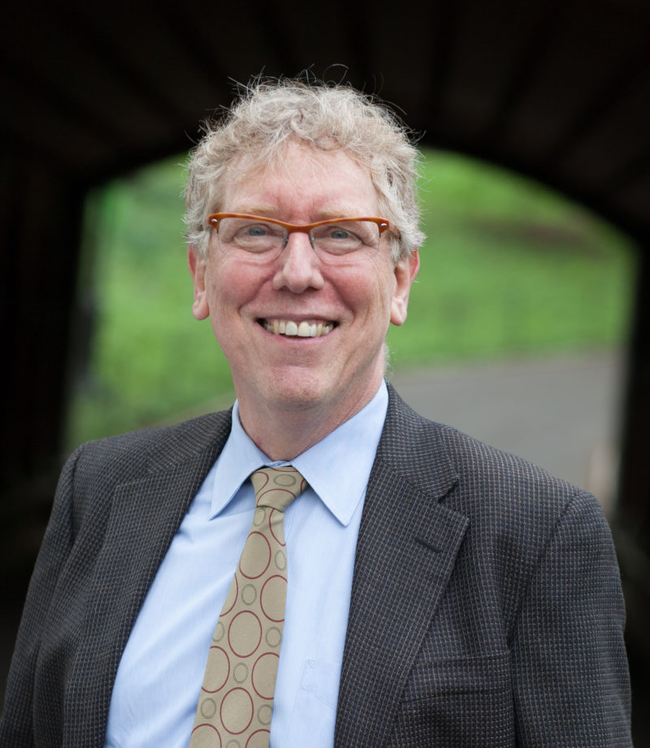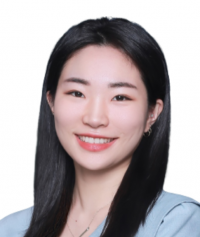 박소영
박소영
[The Psychology Times=박소영 ]

스티븐 커츠(Steven Kurtz) 박사님은 행동 장애를 가지고 있는 아이들을 위해 검증된 치료를 제공하는 아동 청소년 상담사로, 부모자녀 상호작용 치료(PCIT) 국제 협회에 의해 보증된 심리상담 트레이너로 인정받은 임상심리사이다. 과거에, 그는 뉴욕대학교 어린이 청소년 정신 의학과 교수로서 일하며 선택적 함구증을 위한 부모자녀 상호작용 치료(PCIT-SM)를 창립했고, 현재 뉴욕에 위치한 커츠 심리 상담 센터의 창립자로서 주 임상심리사와 멘토로 일하고 계신다.
선택적 함구증과 PCIT-SM에 대해 더 포괄적인 정보를 제공하기 위해, 그리고 비슷한 길을 걸으려는 대학생으로서 조언을 구하고자 박사님과 인터뷰한 내용을 공유해 보고자 한다.
“선택적 함구증과 언어 장애의 차이가 무엇인가요?”
박사님에 의하면 언어 장애와 선택적 함구증의 차이는 기술 부족(Skills-Deficit)과 성능 부족(Performance-Deficit)으로 볼 수 있는데, “기술 부족은 아무리 하고 싶은 마음이 강해도, 또는 최고의 환경 속에서도 하지 못하는 어려움”이고 “성능 부족은 할 수 있음에도 불구하고 정해진 환경에서 하지 못하는 어려움”이라고 설명하셨다. 근본적으로, 선택적 함구증의 치료는 아이들이 말할 수 있는 잠재력을 강화해 끌어내는 과정이고 언어 장애는 이미 가지고 있지 않은 기술을 새로 배우게끔 하는 과정이라 볼 수 있다. 박사님에 의하면, 코로나 동안 놓쳤던 아이들의 사회 경험과 시간을 고려하면, "점점 더 많은 아이가 선택적 함구증을 포함한 다른 여러 불안 장애의 경계에 서 있을 가능성이 크다"라고 제시하셨다.
“아이들의 부모님과 소통하는 것에 있어서 중요한 것들은 무엇인가요?”
유아와 청소년을 상대하는 것은 그만큼 아이들과 연결된 부모 그리고 학교 교사나 상담사와의 협력을 뜻하기도 한다. 박사님에 의하면 이러한 소통의 공통적인 핵심은 임상심리사로서 가져야 할 인내심, 융통성, 그리고 인정이라 하셨다.
특별한 예로, 아이의 심각한 증상에 행동 치료가 더 이상 유효하지 않게 된다면, 약물 치료를 마지막 수단으로 부모님께 권할 수 있는데, 여기서 박사님은 부모들이 약물 치료에 대해 가질 수 있는 걱정을 존중해주고 그들의 시선에 맞춰 헤아려줄 수 있는 공감 능력을 강조하셨다. 치료를 강요하기보다 부모님들의 의견에 맞춰 기다려주며, 나중에 또 다른 기회가 생긴다면 넓은 마음으로 수용해 주는 것 또한 중요한 태도들이다. 여기에 더해, 부모님들과 소통하며 현실적 그리고 감정적으로 대응하는 능력이 필요한데 부모님들의 입장을 헤아려주는 것과 동시에 약물 치료의 부재가 아이의 자신감과 자존감에 어떤 부정적 영향을 끼치는지 설명할 수 있어야 한다. 물론 어려운 대화이겠지만, 위의 세 가지 기술을 가지고 부모님과 잘 소통할 수 있다면, 박사님께서 말씀하셨듯, 아이들에게 약물치료는 높은 담처럼 느껴지는 선택적 함구증을 넘어서기 위한 돌계단 역할이 될 수도 있다.
“현재 이 분야를 공부하는 대학생들을 위해 해주실 조언의 말씀이 있을까요?”
마지막으로, 미래 임상심리사와 심리학자들을 위한 조언으로, 박사님은 "과학자와 상담사로서 둘 다 생각할 수 있는 능력을 갖추는 것"이 중요하다고 답변하셨다. 그는 이 직업을 마술사라고도 표현하시며, 아이들 앞에서는 한없이 다정하고 장난기 많은 사람으로 보일 수 있겠지만, 놀이를 통해 아이들의 시선을 분산시키며, 그 뒤에서는 과학자로서 꾸준히 관찰하고, 분석하며, 아이들의 한계를 시험하고, 도전하게끔 한다는 것이다.
개인적으로 커츠 심리 상담 센터에서 인턴으로 일하며, 초반에 이 치료가 그저 아이들과의 놀이라고 생각돼 치료 방법에 대해 의심을 품은 적이 몇 번 있었다. 하지만, 4주간의 집단 심리 상담 기간 카운슬러로 아이들과 가깝게 일하면서, 첫 주 때 극심한 불안으로 허공만 쳐다보고 말을 거의 하지 못했던 아이가, 상담 마지막 주에 내 이름을 부르고, 아이들 앞에서 발표하는 모습을 보고 이 치료의 신빙성을 깨달았다.
박사님과의 이야기를 통해 다시금 유아 임상심리사라는 직업은 때로는 예리한 과학자처럼, 감정적인 시인처럼, 친근한 친구처럼, 교묘한 마술사처럼, 또 가족마다 다른 분위기와 색깔을 형성할 수 있는 한 예술가처럼 여러 색깔과 모습을 지닐 수 있는 카멜레온과 같은 직업이라는 생각이 들었다. 아직 갈 길이 멀어 보이지만, 박사님이 말씀하셨던 것처럼, 꾸준한 호기심, 노력, 그리고 조금의 운이 따라준다면, 우리도 금방 유능한 전문가가 될 수 있을 거라 믿는다.

Dr. Steven Kurtz (Ph.D.) is a leading clinician in treating children with behavioral problems and disorders with empirically-based treatments. He is also one of only twenty-one certified Global Trainers for Parent-Child Interaction Therapy established by PCIT International. In the past, he also worked as a professor at New York University (NYU) School of Medicine in the Department of Child and Adolescent Psychiatry, a clinical director for NYU Child Study Center, and while doing so, founded and developed Parent-Child Interaction Therapy for Selective Mutism (PCIT-SM). Currently, as the founder of Kurtz Psychology Consulting PC, he’s working as the main clinician and a mentor.
As an intern working at Kurtz Psychology Consulting PC, I conducted an interview with Dr. Kurtz to provide more comprehensive information about Selective Mutism(SM) and PCIT-SM, along with life advice about being a scholar and a clinician in this field.
“What is the difference between Selective Mutism and Language Disorder?”
According to Dr. Kurtz, the distinction between language disorder and selective mutism can be explained by seeing the former as a skills-deficit versus the latter as a performance-deficit. Here, a skills-deficit is “that which you can't do under the best of circumstances, even if you're highly motivated” and a performance-deficit is “the difficulty you have in a given setting to do something that you're actually capable of doing.” Essentially, SM, then, presents clinical work that involves strengthening and eliciting children to verbally communicate, while language disorder involves learning a skill to speak that isn’t already there for children. Thus, as Dr. Kurtz suggested, considering the lack of children’s social experience over the pandemic, there’s likely “an increase in kids presenting with anxieties of all types, including selective mutism” after the pandemic.
“What are some important skills clinicians should have when communicating with children’s parents?”
Meeting with young clients indicates clinicians' collaboration with parents and school communities. Several key themes in communicating with parents and school teachers were brought up, which were maintaining patience, flexibility, and non-judgmental attitudes as clinicians.
For example, when behavioral treatment no longer works with children and medication is recommended as a last resort, it is empirical that clinicians honor parents' concerns toward medication and meet where they are at by hearing out their opinions, waiting patiently for their decision, and maintaining an open-mindedness instead of enforcing medication to family. In such a situation, when interacting with parents, clinicians may be challenged to be both realistic and empathetic. They might have to help parents understand both pros and cons of using the medicine, and how children’s self-efficacy and self-esteem might be further harmed without it. Although it may be a difficult conversation, as Dr. Kurtz described, when communicated effectively using the three main skills above, medication may work as a “booster” for the child to overcome a seemingly insurmountable wall that’s characterized as selective mutism.
“Any advice for current college students studying this field?”
Dr. Kurtz encouraged current college students “to think like a scientist and a clinician” at the same time. As he would describe himself as a magician, although a clinician may seem like a playful and fun person to be around children, behind this trick, he’s constantly working as a scientist by observing, analyzing, and testing children’s limits to overcome their fear of speaking.
Personally, when I first came as an intern, thinking that the treatment is just about playing with kids, I had several suspicions about PCIT-SM’s effectiveness. After joining as a counselor in a four-week-long group therapy session, however, I realized its credibility when I witnessed the kid calling my name and giving a presentation in front of their friends, after weeks of staring in the blank and not speaking due to extreme anxiety.
After having a conversation with Dr. Kurz, being a clinician for children resonated as being a colorful chameleon: sometimes we need to be an acute scientist, an emotional poet, an intimate friend, a skillful magician, and sometimes an artist who can create each session unique and colorful for families. Although it seems like a long process, as Dr. Kurtz indicated, with continued curiosity, proactiveness, and a little bit of luck, it is hopeful that we, too, can soon be competent experts in this field.
지난 기사
참고문헌
Kurtz Psychology Consulting PC [Website]. (연도 미상). URL: https://www.kurtzpsychology.com/
S. Kurtz, 개인적인 인터뷰, 2022년 11월 11일.
다른 곳에 퍼가실 때는 아래 고유 링크 주소를 출처로 사용해주세요.
 http://www.psytimes.co.kr/news/view.php?idx=5191
http://www.psytimes.co.kr/news/view.php?idx=5191

sp5562@nyu.edu